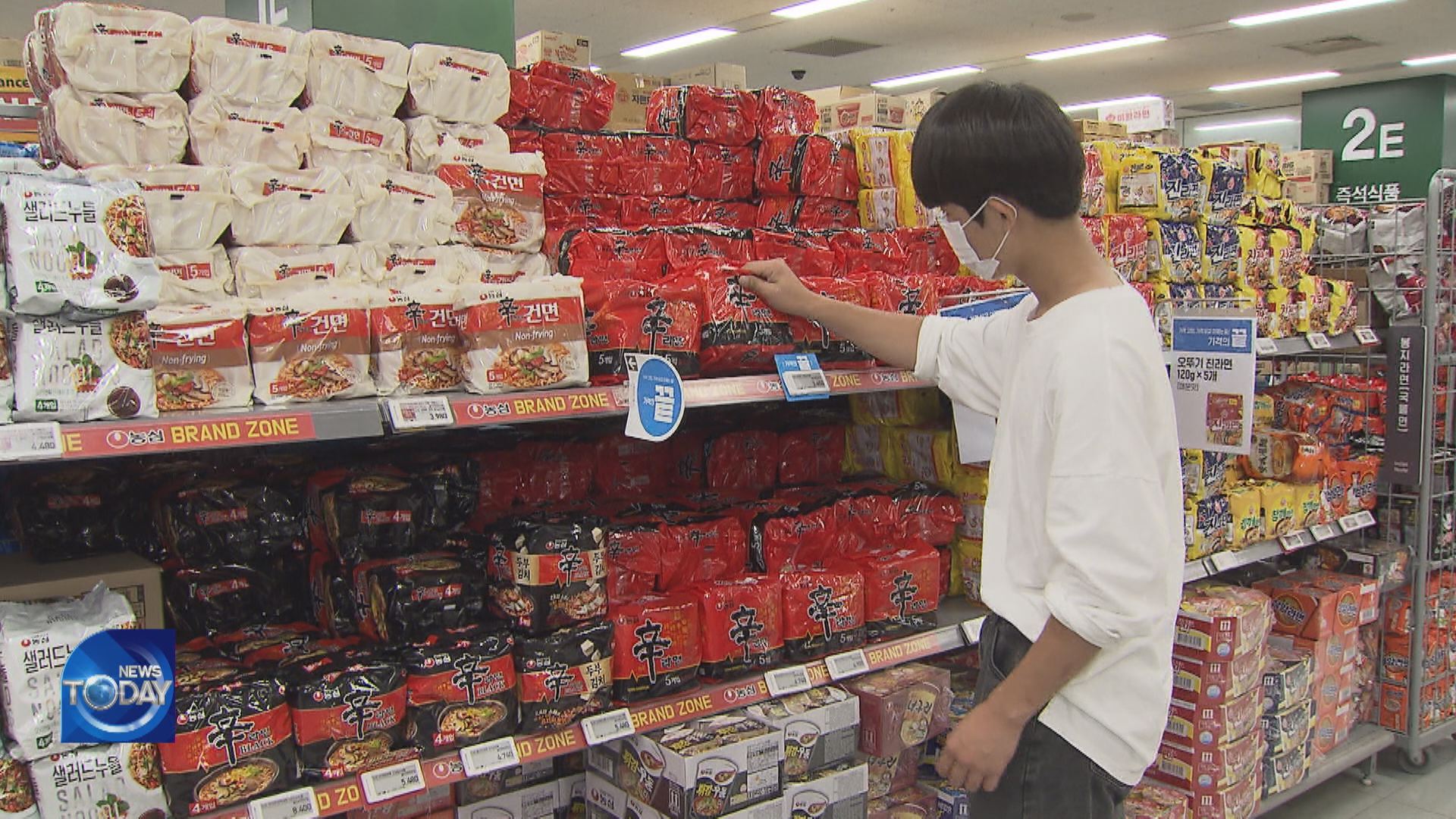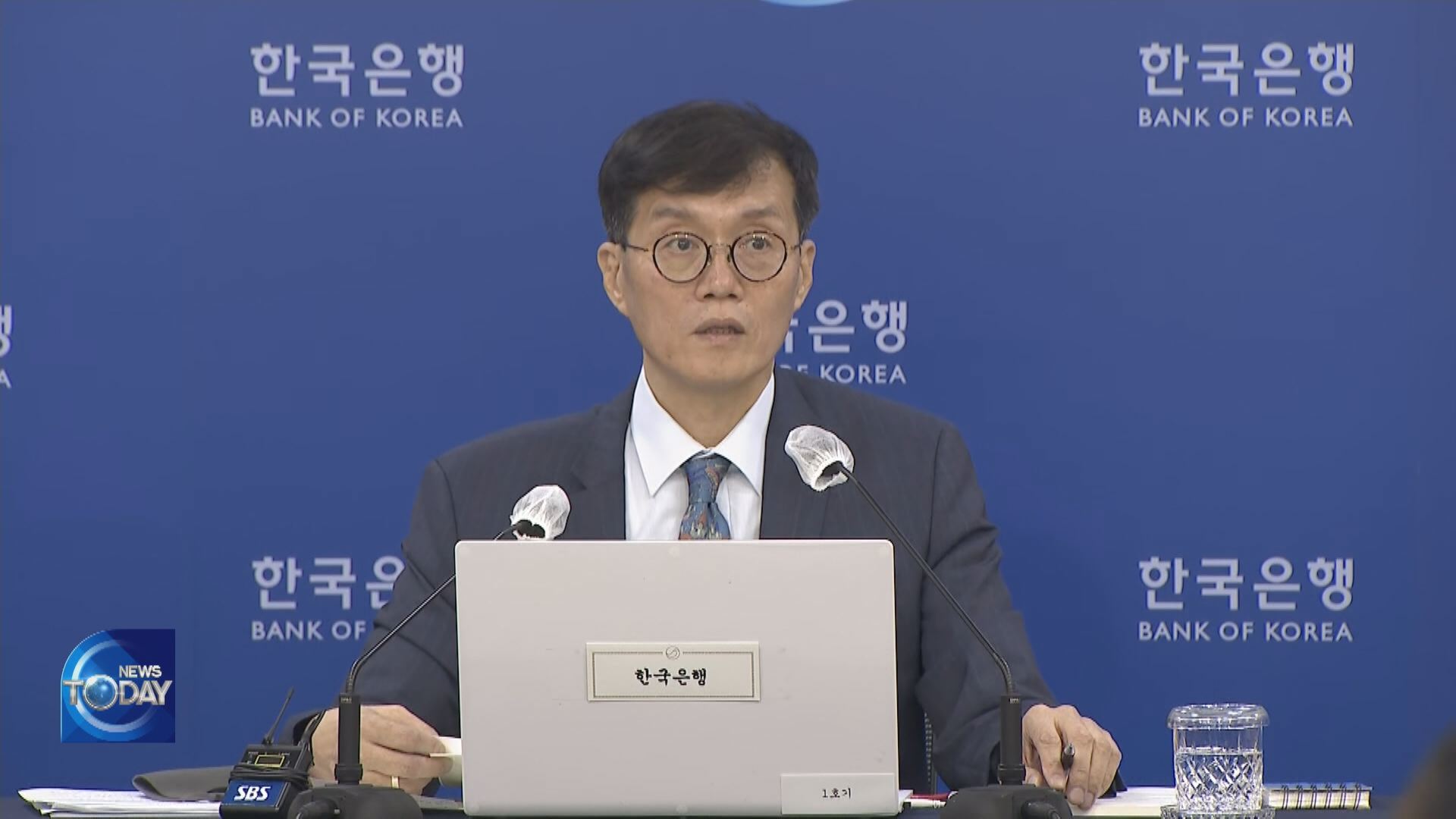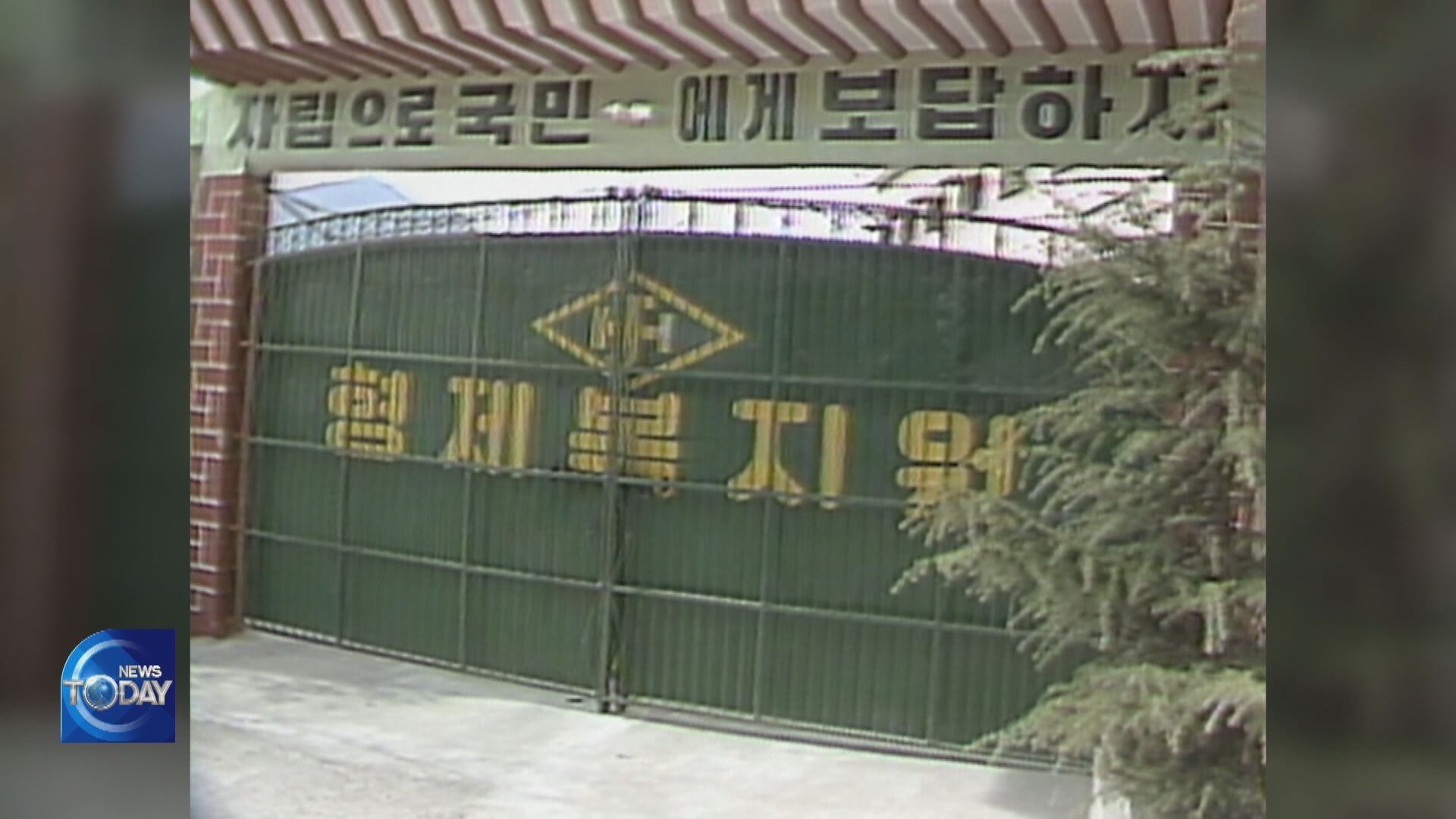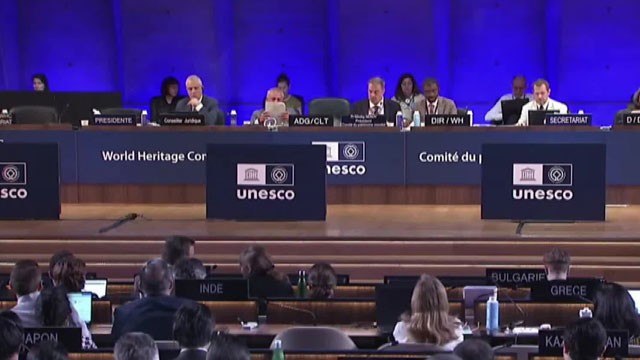SURGE IN PROCESSED FOOD PRICES
입력 2022.08.25 (14:57)
수정 2022.08.25 (16:45)
읽어주기 기능은 크롬기반의
브라우저에서만 사용하실 수 있습니다.
[Anchor Lead]
Rising global grain prices are pushing up the prices of processed foods in Korea more frequently. Nongshim, the largest ramyeon producer in Korea has increased their prices in a year, and hamburger franchises have increased their prices twice already this year. It seems at least one item costs more every week, and unfortunately such trend is likely to continue for some time.
[Pkg]
Nongshim will raise the prices of its ramyeon products by an average of 11.3% starting next month. The prices of its snack items, including Shrimp Snack, are set to go up by more than 5% as well. Such hikes usually took place every three to five years, but this time it's happening in only a year since the last price raise for ramyeon products. Six months for snacks.
[Soundbite] (Nongshim Employee) : "Costs are rising as raw ingredients and exchange rates have spiked. Price increases were urgently needed, but they were delayed after Chuseok holiday given the inflation."
Hamburgers, another affordable food item, joined the price hike twice this year alone. Starting Thursday, McDonald's is raising the prices of its hamburgers by 4.8%. It seems the global fast food franchise keeps jacking up prices ahead of weekends since late July.
[Soundbite] Choi Yeong-wu(Office Worker) : "I can understand it because the global economy isn’t good. But I eat hamburgers because they are affordable. Having to pay more is hard for me."
But such spikes are likely to continue for the foreseeable future. International grain prices that peaked in Q2 are reflected in retail prices after three months. Steeply climbing currency exchange rates further fuel this trend.
[Soundbite] Hwang Sung-hyuk(Nonghyup Economic Research Institute) : "Exchange rate increases are bound to result in higher grain import costs, pushing up the prices of processed foods, ultimately leading to consumer price inflation."
Agricultural and livestock products are also priced higher ahead of the Chuseok holiday. It seems Korean consumers have to grow accustomed to the rising prices for a while.
Rising global grain prices are pushing up the prices of processed foods in Korea more frequently. Nongshim, the largest ramyeon producer in Korea has increased their prices in a year, and hamburger franchises have increased their prices twice already this year. It seems at least one item costs more every week, and unfortunately such trend is likely to continue for some time.
[Pkg]
Nongshim will raise the prices of its ramyeon products by an average of 11.3% starting next month. The prices of its snack items, including Shrimp Snack, are set to go up by more than 5% as well. Such hikes usually took place every three to five years, but this time it's happening in only a year since the last price raise for ramyeon products. Six months for snacks.
[Soundbite] (Nongshim Employee) : "Costs are rising as raw ingredients and exchange rates have spiked. Price increases were urgently needed, but they were delayed after Chuseok holiday given the inflation."
Hamburgers, another affordable food item, joined the price hike twice this year alone. Starting Thursday, McDonald's is raising the prices of its hamburgers by 4.8%. It seems the global fast food franchise keeps jacking up prices ahead of weekends since late July.
[Soundbite] Choi Yeong-wu(Office Worker) : "I can understand it because the global economy isn’t good. But I eat hamburgers because they are affordable. Having to pay more is hard for me."
But such spikes are likely to continue for the foreseeable future. International grain prices that peaked in Q2 are reflected in retail prices after three months. Steeply climbing currency exchange rates further fuel this trend.
[Soundbite] Hwang Sung-hyuk(Nonghyup Economic Research Institute) : "Exchange rate increases are bound to result in higher grain import costs, pushing up the prices of processed foods, ultimately leading to consumer price inflation."
Agricultural and livestock products are also priced higher ahead of the Chuseok holiday. It seems Korean consumers have to grow accustomed to the rising prices for a while.
■ 제보하기
▷ 카카오톡 : 'KBS제보' 검색, 채널 추가
▷ 전화 : 02-781-1234, 4444
▷ 이메일 : kbs1234@kbs.co.kr
▷ 유튜브, 네이버, 카카오에서도 KBS뉴스를 구독해주세요!
- SURGE IN PROCESSED FOOD PRICES
-
- 입력 2022-08-25 14:57:37
- 수정2022-08-25 16:45:04

[Anchor Lead]
Rising global grain prices are pushing up the prices of processed foods in Korea more frequently. Nongshim, the largest ramyeon producer in Korea has increased their prices in a year, and hamburger franchises have increased their prices twice already this year. It seems at least one item costs more every week, and unfortunately such trend is likely to continue for some time.
[Pkg]
Nongshim will raise the prices of its ramyeon products by an average of 11.3% starting next month. The prices of its snack items, including Shrimp Snack, are set to go up by more than 5% as well. Such hikes usually took place every three to five years, but this time it's happening in only a year since the last price raise for ramyeon products. Six months for snacks.
[Soundbite] (Nongshim Employee) : "Costs are rising as raw ingredients and exchange rates have spiked. Price increases were urgently needed, but they were delayed after Chuseok holiday given the inflation."
Hamburgers, another affordable food item, joined the price hike twice this year alone. Starting Thursday, McDonald's is raising the prices of its hamburgers by 4.8%. It seems the global fast food franchise keeps jacking up prices ahead of weekends since late July.
[Soundbite] Choi Yeong-wu(Office Worker) : "I can understand it because the global economy isn’t good. But I eat hamburgers because they are affordable. Having to pay more is hard for me."
But such spikes are likely to continue for the foreseeable future. International grain prices that peaked in Q2 are reflected in retail prices after three months. Steeply climbing currency exchange rates further fuel this trend.
[Soundbite] Hwang Sung-hyuk(Nonghyup Economic Research Institute) : "Exchange rate increases are bound to result in higher grain import costs, pushing up the prices of processed foods, ultimately leading to consumer price inflation."
Agricultural and livestock products are also priced higher ahead of the Chuseok holiday. It seems Korean consumers have to grow accustomed to the rising prices for a while.
Rising global grain prices are pushing up the prices of processed foods in Korea more frequently. Nongshim, the largest ramyeon producer in Korea has increased their prices in a year, and hamburger franchises have increased their prices twice already this year. It seems at least one item costs more every week, and unfortunately such trend is likely to continue for some time.
[Pkg]
Nongshim will raise the prices of its ramyeon products by an average of 11.3% starting next month. The prices of its snack items, including Shrimp Snack, are set to go up by more than 5% as well. Such hikes usually took place every three to five years, but this time it's happening in only a year since the last price raise for ramyeon products. Six months for snacks.
[Soundbite] (Nongshim Employee) : "Costs are rising as raw ingredients and exchange rates have spiked. Price increases were urgently needed, but they were delayed after Chuseok holiday given the inflation."
Hamburgers, another affordable food item, joined the price hike twice this year alone. Starting Thursday, McDonald's is raising the prices of its hamburgers by 4.8%. It seems the global fast food franchise keeps jacking up prices ahead of weekends since late July.
[Soundbite] Choi Yeong-wu(Office Worker) : "I can understand it because the global economy isn’t good. But I eat hamburgers because they are affordable. Having to pay more is hard for me."
But such spikes are likely to continue for the foreseeable future. International grain prices that peaked in Q2 are reflected in retail prices after three months. Steeply climbing currency exchange rates further fuel this trend.
[Soundbite] Hwang Sung-hyuk(Nonghyup Economic Research Institute) : "Exchange rate increases are bound to result in higher grain import costs, pushing up the prices of processed foods, ultimately leading to consumer price inflation."
Agricultural and livestock products are also priced higher ahead of the Chuseok holiday. It seems Korean consumers have to grow accustomed to the rising prices for a while.
이 기사가 좋으셨다면
-
좋아요
0
-
응원해요
0
-
후속 원해요
0












![[속보] 내란특검 “서울구치소에 오후 2시까지 윤석열 전 대통령 3차 인치 지휘”](/data/layer/904/2025/07/20250716_5Lxha9.jpg)
![[속보] 순직 해병 특검 “오늘 오후 박정훈 대령 참고인 조사”](/data/layer/904/2025/07/20250716_MUM2IP.jpg)
![[속보] 경찰·노동부, ‘인천 맨홀 사망’ 인천환경공단 등 압수수색](/attach/image/2025/03/23/20250323_8Sjy5d.jpg)


이 기사에 대한 의견을 남겨주세요.